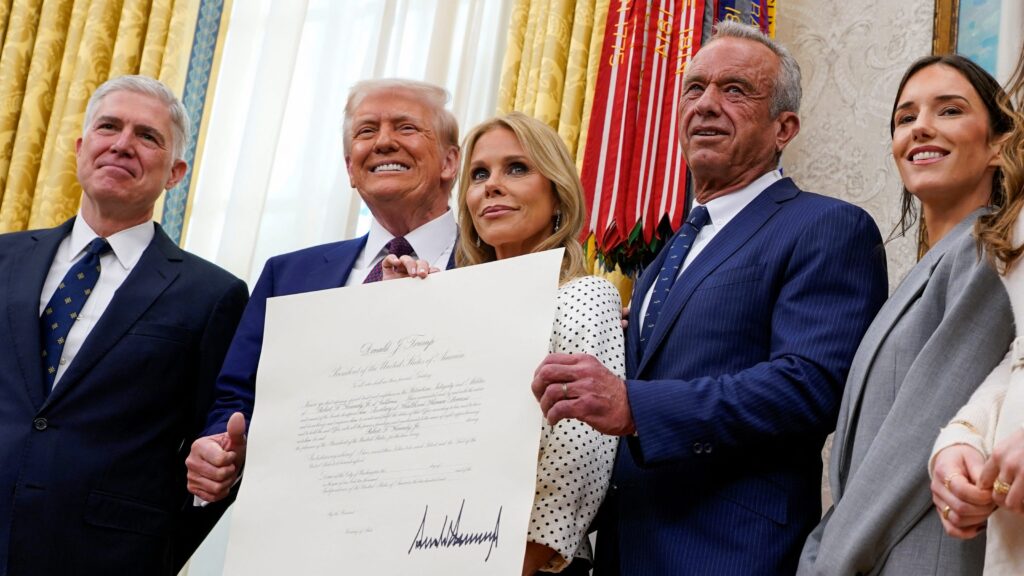Robert F. Kennedy Jr.’s confirmation as the head of the Department of Health and Human Services marks a significant moment in American politics. Despite his lack of background in medicine, Kennedy’s appointment signals a shift in prioritizing preventive healthcare over treating chronic illnesses. His controversial views on vaccines, antidepressants, and food additives have divided opinions, with some healthcare professionals expressing concerns while others, especially mothers, supporting his stance against “Big Pharma.”
Kennedy’s vision of making America healthy again has garnered both praise and criticism. As the chair of the new Make America Healthy Again Commission, he aims to address the root causes of the nation’s health crisis, particularly childhood chronic diseases. Supporters like food activist Vani Hari see this as a historic opportunity to hold food and chemical companies accountable, while critics, such as emergency room doctor Rob Davidson, worry about Kennedy’s history of spreading medical misinformation and conspiracy theories.
In his quest for radical transparency and freedom of choice, Kennedy advocates for informing the public about the additives in their food and scrutinizing programs like SNAP to ensure they promote health rather than subsidize unhealthy eating habits. He also highlights the interconnectedness of physical and spiritual well-being, emphasizing the need to address both aspects for a healthier society.
Kennedy’s confirmation has sparked a mix of reactions, showcasing a polarized response within the healthcare community and beyond. As he embarks on his role as health secretary, all eyes are on how his disruptive approach will shape the future of American healthcare.

